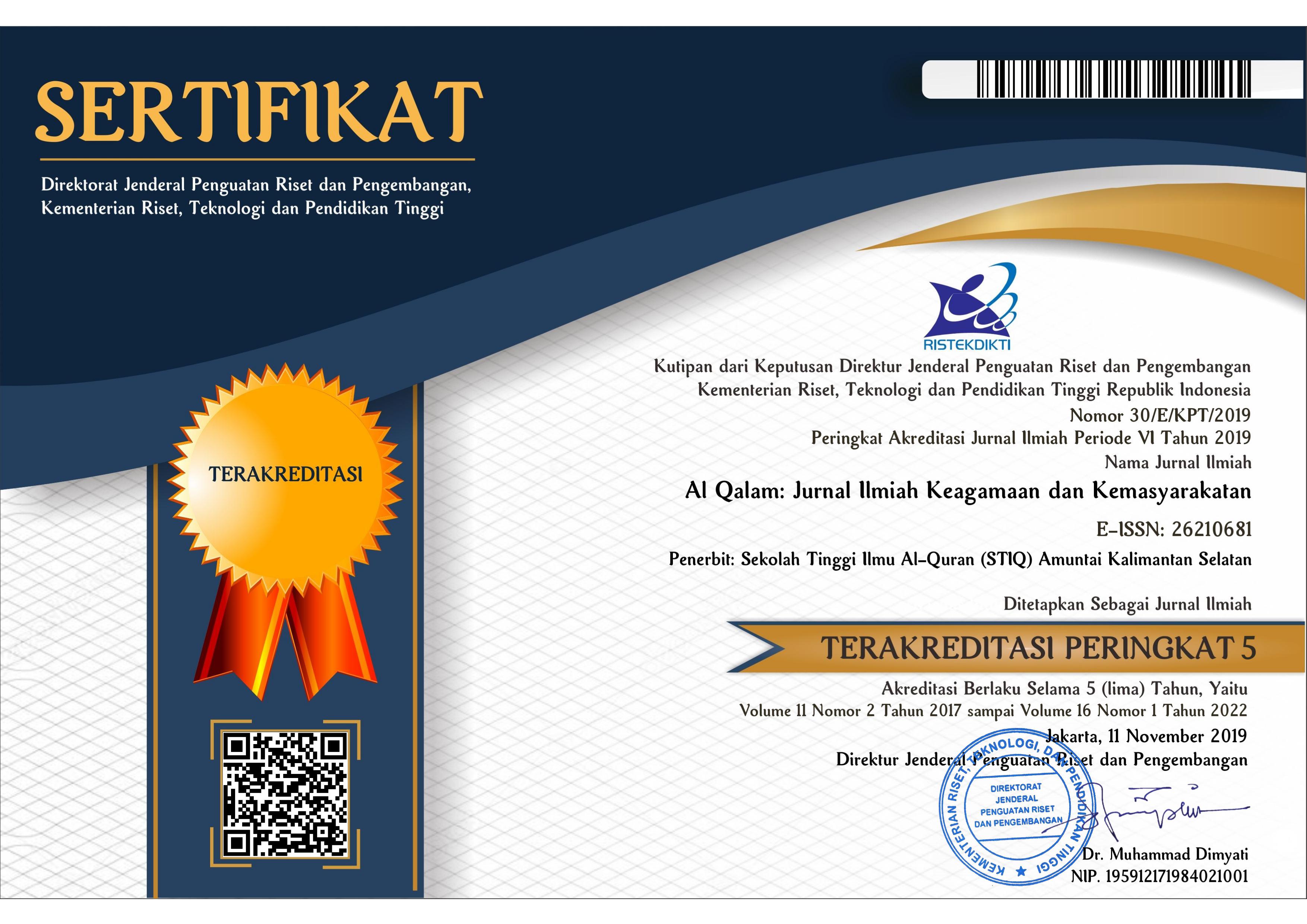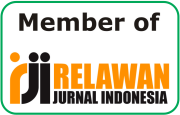Educational Objectives and Criteria for the Ideal Teacher Perspective of Plato and Al Ghazali
Abstract
Keywords
Full Text:
PDFReferences
Adicita, Yosef, S Fil, Nicolas Agung, Pramudya S Pd, M Sn, Friska Br, Sinaga S Sn, Martina Prativi, and M Fil. “Konsep Ideal Plato Mengenai Filsafat Pendidikan Yang Berbasis Humanis Dan Relevansinya Bagi Pendidikan Seni Musik Di Era 4.0.” Prosiding Seni Pertunjukan 3 1, no. 1 (December 1, 2019): 413–21. http://proceeding.senjuk.conference.unesa.ac.id/index.php/senjuk3/article/view/38.
Agus, Zulkifli. “Pendidikan Islam Dalam Perspektif Al-Ghazali.” Raudhah Proud To Be Professionals : Jurnal Tarbiyah Islamiyah 3, no. 2 (December 17, 2018): 21–38. https://doi.org/10.48094/RAUDHAH.V3I2.28.
Arista, Rizki Noura. “Konsep Pendidikan Menurut Al-Ghazali Dan Relevansinya Dalam Pendidikan Di Indonesia.” Jurnal Tawadhu 3, no. 2 (October 15, 2019): 883–92. https://ejournal.iaiig.ac.id/index.php/TWD/article/view/170.
Atabik, Ahmad. “Telah Pemikiran Al-Ghazali Tentang Filsafat.” FIKRAH 2, no. 1 (June 27, 2014). https://doi.org/10.21043/FIKRAH.V2I1.551.
Daulai, Afrahul Fadhila. “Hakikat Manusia Dan Pendidikan.” Tazkiya: Jurnal Pendidikan Islam 10, no. 2 (January 5, 2022). https://doi.org/10.30829/TAZ.V10I2.1222.
Dkk, Ranius. Dasar-Dasar Kependidikan. Sumatera Utara: Yayasan Kita Menulis, 2021.
Effendi, Rusfian. Filsafat Kebhagiaan (Plato, Aristoteles, Al-Ghazali, Al Farabi). Yogyakarta: Deepublis, 2017.
Fikri, M. Kamalul. Imam Al-Ghazali: Biografi Lengkap Sang Hujjatul Islam. Yogyakarta: Laksana, 2022.
Hidayat, Nur. “Komparasi Filsafat Pendidikan Barat Dan Pendidikan Islam.” JURNAL AN-NUR: Kajian Ilmu-Ilmu Pendidikan Dan Keislaman 7, no. 01 (June 25, 2021): 201–15. https://www.journal.an-nur.ac.id/index.php/annur/article/view/66.
Jenilan, Jenilan. “Filsafat Pendidikan.” El-Afkar: Jurnal Pemikiran Keislaman Dan Tafsir Hadis 7, no. 1 (June 7, 2018): 69–74. https://doi.org/10.29300/JPKTH.V7I1.1588.
Karno, Safawardi Yusro, M. Miftahul Huda. Cara Kerja Ilmu-Ilmu. Cilandak: Ptiq Press, 2018.
Lidinilah, Izul Haq. “Teori Idea Plato.” Jaqfi: Jurnal Aqidah Dan Filsafat Islam 5, no. 1 (April 23, 2020): 68–82. https://doi.org/10.15575/JAQFI.V5I1.6859.
MA, Abuddin Nata. Pemikiran Para Tokoh Pendidikan Islam. Jakarta: PT Raja Grafindo Persada, 2000.
Marwah, Siti Shafa, Makhmud Syafe’i, and Elan Sumarna. “Relevansi Konsep Pendidikan Menurut Ki Hadjar Dewantara Dengan Pendidikan Islam.” TARBAWY : Indonesian Journal of Islamic Education 5, no. 1 (May 1, 2018): 14–26. https://doi.org/10.17509/T.V5I1.13336.
Mubin, Ali. “Refleksi Pendidikan Filsafat Idealisme.” Rausyan Fikr : Jurnal Pemikiran Dan Pencerahan 15, no. 2 (August 8, 2019). https://doi.org/10.31000/RF.V15I2.1800.
Mukromin, Mukromin. “Pemikiran Imam Al-Ghazali Dalam Pendidikan Islam.” Paramurobi: Jurnal Pendidikan Agama Islam 2, no. 1 (October 5, 2019): 33–42. https://doi.org/10.32699/PARAMUROBI.V2I1.814.
MusyafaÂ’, Fathoni. “Idealisme Pendidikan Plato.” Jurnal Tadris Stain Pamekasan 5, no. 1 (2013). https://garuda.kemdikbud.go.id/documents/detail/267589.
Nurohman. “Konsep Pendidikan Al-Ghazali Dan Relevansinya Dalam Sistem Pendidikan Di Indonesia.” As-Salam: Jurnal Studi Hukum Islam & Pendidikan 9, no. 1 (June 26, 2020): 41–60. https://doi.org/10.51226/ASSALAM.V9I1.189.
Raharjo, Bambang. “Konsep Pendidikan Al Ghazali.” Suhuf 2, no. 1 (2009).
Rusdi, Rusdi. “Filsafat Idealisme: Implikasinya Dalam Pendidikan.” Dinamika Ilmu, December 17, 2013, 291–306. https://doi.org/10.21093/DI.V13I2.70.
Samuel. M.C., Ozmon, H. Philosophical Foundation Of Education. sydney: Meril Publishing Company, 2008.
Sudarto. Filsafat Pendidikan Islam. Yogyakarta: Deepublish Publisher, 2021.
Syihabuddin, Muhammad Arif. “Studi Komparatif Filsafat Pendidikan Islam Dan Barat.” JALIE; Journal of Applied Linguistics and Islamic Education 1, no. 1 (August 7, 2017): 68–93. https://doi.org/10.33754/JALIE.V1I1.84.
Tambak, Syahraini. “Pemikiran Pendidikan Al-Ghazali.” Al-Hikmah: Jurnal Agama Dan Ilmu Pengetahuan 8, no. 1 (2011): 73–87. https://journal.uir.ac.id/index.php/alhikmah/article/view/1541.
Tang, Muhammad, and Mansur dan Ismail. “Landasan Filosofis Pendidikan: Telaah Pemikiran Socrates, Plato Dan Aristoteles.” Moderation | Journal of Islamic Studies Review 1, no. 1 (March 25, 2021): 47–56. https://journal.adpetikisindo.or.id/index.php/moderation/article/view/16.
Yanuarti, Eka, Sekolah Tinggi, Agama Islam, and Negeri Curup. “Pendidikan Islam Dalam Perspektif Filsafat Idealisme.” Belajea: Jurnal Pendidikan Islam 1, no. 2 (December 27, 2016). https://doi.org/10.29240/BJPI.V1I2.108.
Yuana, Kumara A. 100 Tokoh Filsuf Barat Dari Abad 6 SM-Abad 21 Yang Menginspirasi Dunia Bisnis. Yogyakarta: Penerbit Andi, 2010.
Zein, Muh. “PERAN GURU DALAM PENGEMBANGAN PEMBELAJARAN.” Jurnal Inspiratif Pendidikan 5, no. 2 (July 1, 2016): 274–85. https://doi.org/10.24252/IP.V5I2.3480.DOI: http://dx.doi.org/10.35931/aq.v17i5.2209
Refbacks
- There are currently no refbacks.
Copyright (c) 2023 Al Qalam: Jurnal Ilmiah Keagamaan dan Kemasyarakatan
Al Qalam: Jurnal Ilmiah Keagamaan dan Kemasyarakatan
index by:
Publish by:
Sekolah Tinggi Ilmu Al-Qur'an Amuntai
Contact us:
Address: Jl. Rakha Pakapuran, Amuntai Utara
Kabupaten : Hulu Sungai Utara
Kode Pos : 71471
Provinsi : Kalimantan Selatan
Telephone : 085251613000
Email: hafizhihusinsungkar@gmail.com

This work is licensed under a Creative Commons Attribution 4.0 International License


